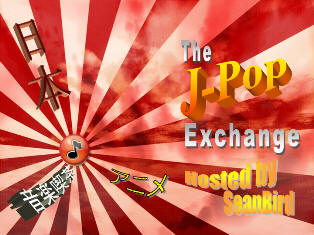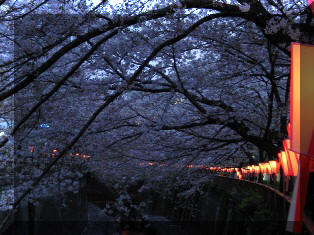

J-Pop Exchange Exclusive Interview with Hajime Mizoguchi
Hajime Mizoguchi J-Pop Exchange Radio Show
Exclusive Interview
Transcript
SeanBird (J-Pop Exchange):
Thank you for taking the time to speak with us…
Hajime Mizoguchi: Thank you SeanBird-san, I'm happy to be
here. (I'm looking forward to rediscovering myself through these
questions)
SeanBird:
Did your
interest in music begin in your childhood? How did you become
interested in music?
Please tell us about your musical studies and training.
Hajime Mizoguchi:
My mother got me a piano, when she saw me dancing in front of the
TV--- Kerajan was conducting.
My mother was into Tango, and was good friends with a well-known
Bandoneon player….who became my first piano teacher. I loved playing
the piano, and practiced every day. My mother trained me to have
perfect pitch, which I am very thankful of.
I switched to Cello when I was 11, when I saw Pablo Casals'
performance at the United Nations on TV. Luckily, there was a cello
teacher living 3 minutes away from my home.
SeanBird: How and when did you decide to pursue
a career in music? Was it always your intention to pursue a career
in music?
Hajime Mizoguchi:
As I continued my cello lessons, I joined a rock band as a keyboard
player, when I was in middle school and high school. We covered
songs from the Beatles, Deep Purple, Cream, and the Japanese band,
The Sadistic Mika Band.
When I was in 9th grade, my cello teacher told me, I should
try out for a music high school, but I didn't pass the entrance
exam. My cello performance, however, was above the passing mark. So
I studied hard for 3 years, and got accepted to Tokyo University of
the Arts as a cello performance major. And that's when I decided to
live as a musician.
SeanBird: Can you give us some insight into your
writing process? When you compose music, how do you progress from
inspiration to creation?
Hajime Mizoguchi:
I've never studied composition. I was always a performer, and was
not interested in composing.
When I was 23, I got into a car accident, and couldn't sleep for
months. So I made songs to help me fall asleep. That's how I started
composing.
Composing changed me, it was as if the world all of the sudden
became color from black and white. For
about 10 years, I had so many images and inspirations, just coming
out, flowing in my mind.
These days, I am more strategic. I come up with some images and the
main focus of the piece, let it grow in my mind for 3 to 7 days.
Images come to me when I am driving, walking, watching a movie,
doing housework…. not when I am trying to compose.
I put together these images, using a computer, and make it a piece
of music. It's like, putting beautiful crystal gems in line.
SeanBird:
Who are your musical influences?
Hajime Mizoguchi:
So many! Especially the music I listened to when I was 10 to 22 has
strongly influenced me as a musician.
Classical music : Karajan, Pablo Casals, Heifetz, Debussy, Brahms
Rock and Roll and more : The Beatles, Deep Purple, Frank Zappa, King
Crimson, Pink Floyd, Ralph Turner, Carlos Jobim, Claus Ogerman, John
Coltrane, Miles Davis, Thelonius Monk, U2, Sting, Johnny Cash.
And especially Nelson Riddle, Frank Sinatra, and Linda Ronstadt,
since I had the honor of playing together with them.
SeanBird: What music do you like to listen to?
Hajime Mizoguchi:
I listen to music of many genre, but I do not listen to Japanese
Enka. I have a lot of Red Hot Chilli Peppers , U2, and Jonbim's
recordings in my car.
SeanBird:
How did you become involved with
composing music for anime?
Hajime Mizoguchi:
Personally, I don't watch Anime so much. But I know that there are
some great musicians who produced music for Osamu Tezuka's
animations. I remember the music for "Princess Knight",
written by Isao Tomita. The orchestra was beautifully synchronized
with the animation. It was
amazing.
Writing music for Anime could be fun and thrilling, just like
writing music for movies. Because of the nature of Anime, the music
can be free, and it can be very stimulating.
SeanBird: Please tell us about the scoring
process behind the production Jin-Roh: The Wolf Brigade. Where in
the process do you, as a composer, become involved? Please
tell us more about this experience.
Hajime Mizoguchi:
The production processes in Japan can be very different from other
countries.
After they give you the plot and the storyboard, you meet with the
director, producer, and the music director, they make a sample tape
and discuss the pieces. When everything is filmed and edited, you
meet with them again for a more detailed arrangement. At this point,
I only have about 2 weeks to finish everything. In Japan, the
composer is responsible for everything. Composing, arranging,
orchestrating. I do it all by myself, and it's a lot of work!
SeanBird: Also, please tell us about the scoring
process behind the production The Vision of Escaflowne. Where in the
process do you, as a composer, become involved? Please tell us
more about this experience.
Hajime Mizoguchi:
Basically the same as what I answered in the previous question. But
for this, the recording was divided in to several sessions, since it
was a year-long TV show.
The composers, Yoko Kanno and I were chosen when the show was
planned.. Yoko always had a clear vision, she was perfect as a music
director. We had been partners for a long time so it worked out
nicely. We both did what we were good at. She came up with the big
picture and images, and I expanded those images and worked on the
details.
The recordings were done in Japan, Italy, and Poland. Yoko and I
have different tastes and recording styles, so we had separate
recording sessions, even for the ones overseas.
The voice "Escaflowne" in the title credit is by an Italian
recording engineer. I asked him jokingly when we were recording.
SeanBird: Are there particular instruments that
you prefer to use in your compositions or orchestrations?
Hajime Mizoguchi:
I like composing and arranging on a grand piano. Other times I use
samplings on a Mac. I also use my computer for arranging pieces for
orchestra. I almost never use Cello when composing.
SeanBird: Do you have any current or upcoming
projects that you would like to talk about? Please tell us
about your latest album.
Hajime Mizoguchi:
I have record labels of my own, and have released several albums. I
really enjoy the high-resolution DSD recordings. I'm always trying
to find new ways to record with a better recording quality.
Last year, I've released a cello quintet album. This year, I have 2
albums out, and 2 more to come.
SeanBird:
In conclusion, is there anything you
would like to talk about that we have not discussed thus far?
Hajime Mizoguchi:
I am a cellist, and that is my foundation. But I also love making
music. It's a tough business to have your own label, and to make
your own albums. But it's very rewarding. Aside from that, I'm also
thinking about finding and producing new talents. And of course, I'm
going to keep performing as a cellist, playing great music in
concerts.
SeanBird: Thank you again for taking time out of
your busy schedule to speak with us.
Take care.
Hajime Mizoguchi:
Thank you very for
everything; I really enjoyed this.